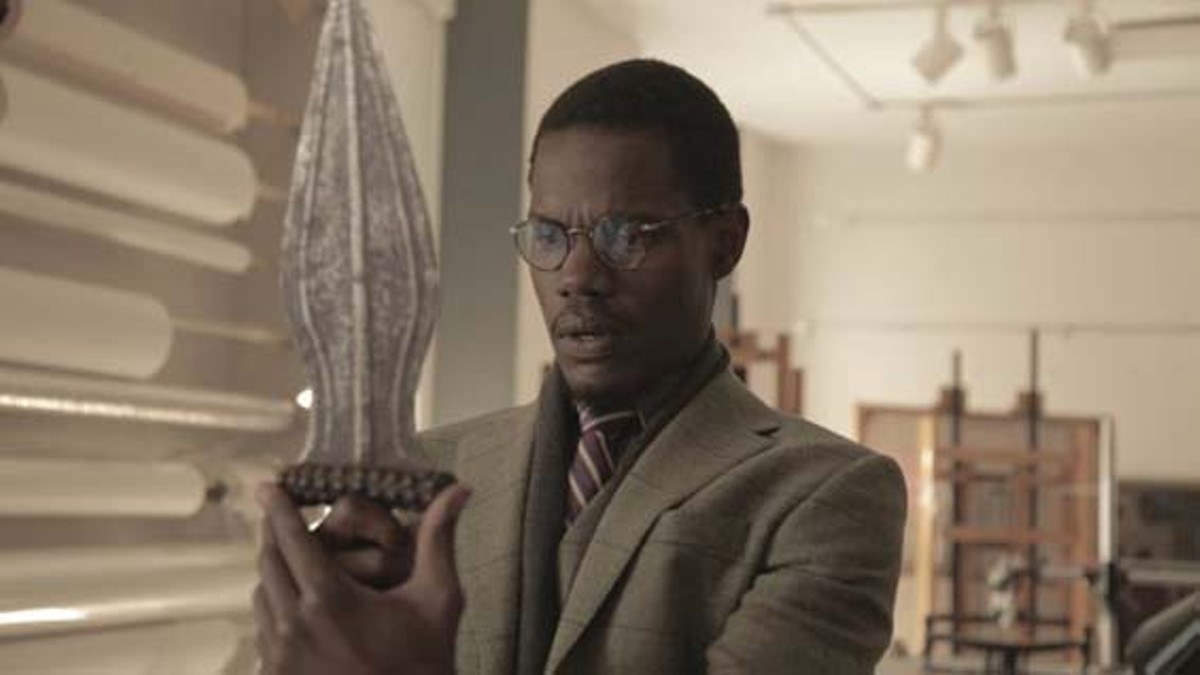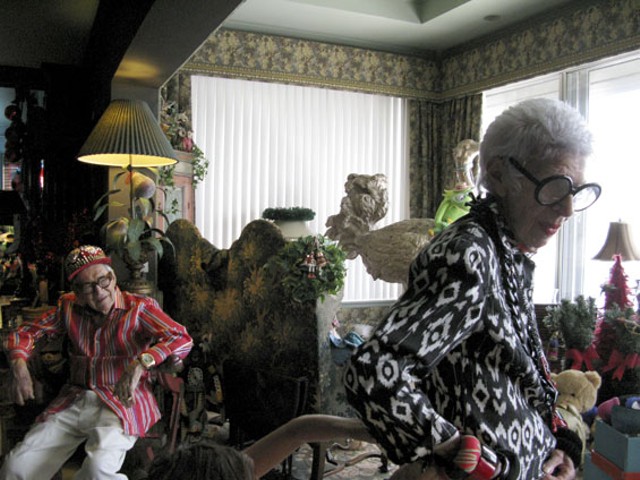Spike Lee's Da Sweet Blood of Jesus starts with an exuberant credit sequence that perhaps captures everything that works in the film, and everything that goes wrong. Set against a background of Day-Glo-bright Brooklyn settings, a young man performs an athletic dance to Bruce Hornsby's solo piano. It's a wonderful sequence, yet it doesn't really have anything to do with the remainder of the film. Which is to say it has everything to do with the rest of the film, because it's Lee's way of letting us know from the start that this is his film — or "joint," if you prefer — and he doesn't really care if it meets our expectations.
Da Sweet Blood of Jesus is a remake of Bill Gunn's 1973 film Ganja & Hess, an elusive masterpiece that was barely released but appeared on best-of-the-decade lists before the '70s had even ended. Ganja & Hess is possibly the archetypal cult movie, a film so completely without precedent that it defies genres: It's often described as a horror film, but with no shocks or scares; it's a vampire film without the usual supernatural trappings; and it's about an addiction to blood, in the sense of ancestry and lineage.
Ganja & Hess is an ambiguous film, in part because of the director's own ambivalence about race and culture. Hess is an archaeologist who lives alone on a large estate in upstate New York, isolated and a bit alienated from city life. The same sense of alienation has driven an associate, played by Gunn himself, to a mental breakdown. He stabs Hess with an African dagger, then kills himself. Hess rises from death as a vampire; in the throes of his thirst for blood, Hess sees visions of ancient African tribes, his historic roots being the real blood he can't face. Meanwhile, Ganja, the assistant's wife, has shown up looking for her husband. She's imperious and demanding, and Hess immediately falls for her. The remainder of the film, loose as it is, rests on Hess' struggle to simultaneously balance his new addiction with their instantly intense relationship.
Skip ahead 40 years, change Croton-on-Hudson to Martha's Vineyard, and we have Lee's new Kickstarter-funded version with its unfortunate Brooklynese title. Hess (Stephen Tyrone Williams) is still a wealthy archaeologist; Ganja (Zaraah Abrahams) is now the assistant's ex-wife and British, but still used to getting her own way. The setting has changed, but not much else has.
It may seem unfair to dwell on comparisons to the 1973 film, but Lee doesn't provide much else to work with. About 75 percent of his film is so word-by-word faithful to the original film that Gunn, who died in 1989, shares Lee's screenwriting credit. It's not an entirely unnecessary reworking of an earlier film (like, for example, the recent Carrie, which also had to give its writing credit to a 40-year-old-screenplay), but it's an indifferent one.
To Lee's credit, the film is never completely uninteresting. It looks and sounds better than its crowd-sourced budget would suggest, thanks to Daniel Patterson's vivid cinematography and Bruce Hornsby's music (which hints at Sam Waymon's superb jazz score for Gunn's film). Williams and Abrahams are well cast, even if they can't entirely step out of the shadows of the earlier performers.
While Lee is content to recreate some scenes almost exactly as Gunn wrote them four decades ago, nothing in Da Sweet Blood of Jesus suggests more than a kind of exasperated respect for the original, like a student begrudgingly working his way through required reading material. For better or worse, the intellectual concerns of Gunn's film (his film is peppered with random shots of books, photographs and miscellaneous antiques, a kind of off-hand scrapbook of black culture at the start of the '70s) don't seem to interest Lee, and the result is that the characters are less motivated. When Lee stay closes to Gunn's film, the tone is a bit too arch, too self-consciously re-doing the material. When he strays from it, especially in the last 30 minutes, it's simply crass, with weak jokes and even a gratuitous lesbian scene.
As in Gunn's film, the strongest moment comes when Hess tries to shake his vampiric addiction and winds up in a Brooklyn gospel church. As a rousing choir performs, Hess appears lost and confused, overwhelmed if not entirely converted by his surroundings. In Ganja, it's a lengthy sequence which brings together two of the film's themes: the ancient African beliefs that haunt Hess and the contemporary black world that he shuns.
For Lee, who stages Hess' thirst for blood as a simple addiction (no visions of ancient tribes here), this might have been an opportunity for something similar, if not a chance to justify the film's terrible title, but he's content to merely sit back and enjoy the choir (wisely using Waymon's song from the '73 film). It's a powerful scene and an opportunity lost.
Like nearly everything about the film, it's a reflection of the source material, but with no real feeling for it. Da Sweet Blood of Jesus is simply made of too many moments like that, turning its adventurous inspiration into something respectfully bland.






